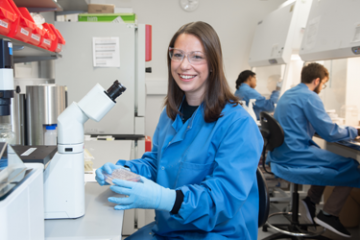Partnerships and impact awards
Transfer of a non-human primate (NHP) in vitro functional assay for the early evaluation of TB vaccine candidates and the associated immune response

At a glance
Completed
Award date
July 2017 - September 2018
Grant amount
£75,608
Principal investigator
Dr Rachel Tanner
Co-investigator(s)
- Dr Sally Sharpe
- Dr Frank Verreck
Institute
University of Oxford
R
- Refinement
Read the abstract
View the grant profile on GtR
NC3Rs gateway article
Read the method article at F1000 Research
